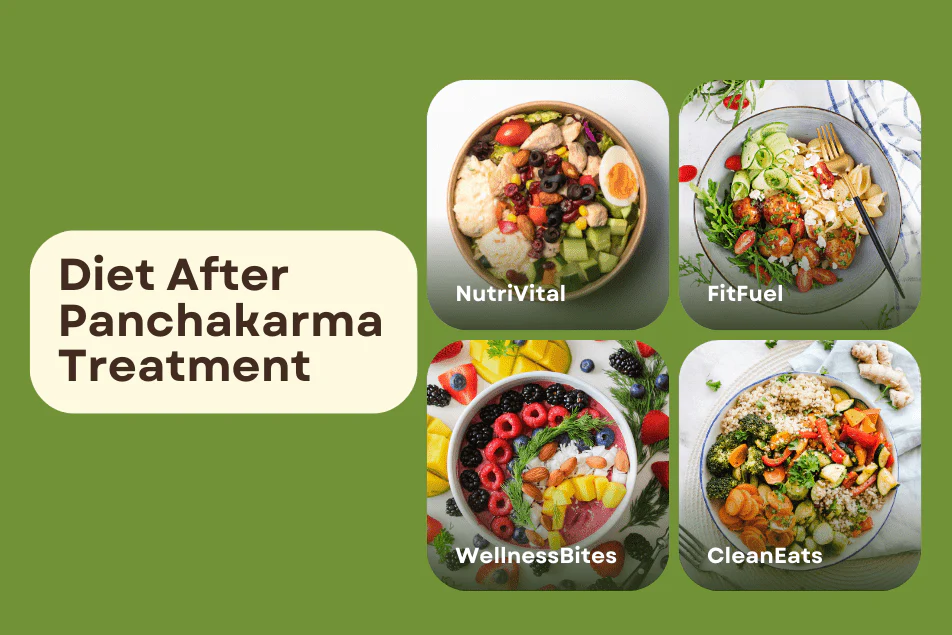
The Role of Diet in Panchakarma Therapy: Foods to Eat and Avoid
Panchakarma therapy is a cornerstone of Ayurvedic medicine, renowned for its ability to detoxify and rejuvenate the body. At Lifewin Panchkarma Center, we believe that diet plays a crucial role in enhancing the benefits of Panchakarma therapy and ensuring optimal results.
Dietary decisions made before, during, and following therapy greatly influence the therapeutic effects of Panchakarma. In this blog, we will explore the function of diet, emphasizing which foods to eat and which to avoid to support and optimize the effectiveness of panchakarma therapy.
Understanding Panchakarma Therapy
Panchakarma, meaning “five actions” in Sanskrit, refers to five therapeutic procedures designed to cleanse the body of toxins, balance the doshas (body energies), and restore overall health. The therapy consists of:
Vamana (Emesis Therapy): Induces vomiting to expel toxins from the upper gastrointestinal tract.
Virechana (Purgation Therapy): Uses herbal laxatives to cleanse the lower gastrointestinal tract.
Basti (Enema Therapy): Administers medicated enemas to cleanse the colon and restore balance.
Nasya (Nasal Therapy): Involves administering medicated oils or powders through the nostrils to clear sinuses and nasal passages.
Raktamokshana (Blood Letting Therapy): Removes toxins from the blood to purify and rejuvenate.
The effectiveness of these treatments is greatly enhanced when complemented by a diet tailored to support the body’s detoxification processes and maintain balance.
The Importance of Diet in Panchakarma Therapy
Dietary choices play a significant role in Panchakarma therapy for several reasons:
Enhancing Detoxification: Consuming the right foods can support the body’s natural detoxification processes, making it easier for the Panchakarma treatments to work effectively.
Balancing Doshas: Ayurveda emphasizes the balance of the three doshas—Vata, Pitta, and Kapha. Diet plays a key role in maintaining this balance, which is crucial for the success of Panchakarma therapy.
Supporting Digestion: A healthy digestive system is essential for the effectiveness of Panchakarma treatments. A proper diet can aid digestion, which is vital for absorbing and eliminating toxins.
Foods to Eat During Panchakarma Therapy
Warm, Cooked Foods
Soups and Stews: Easily digestible and soothing to the digestive system, soups and stews made with seasonal vegetables and herbs can support detoxification.
Khichdi: A traditional Ayurvedic dish made from rice and lentils, khichdi is light, nourishing, and easy on the digestive system, making it ideal during Panchakarma.
Herbal Teas
Ginger Tea: Known for its digestive benefits, ginger tea can help stimulate digestion and reduce nausea.
Peppermint Tea: Peppermint tea is soothing and can aid digestion and reduce bloating.
Fresh Fruits and Vegetables
Apples and Pears: These fruits are easy to digest and help to detoxify the body. They are also rich in fibre, which aids in digestion.
Leafy Greens: Spinach, kale, and other leafy greens are nutrient-dense and support liver function, which is crucial for detoxification.
Whole Grains
Oats and Quinoa: These grains are easy to digest and provide essential nutrients and fibre. They help maintain energy levels while supporting overall health.
Healthy Fats
Ghee: Clarified butter is used in Ayurvedic cooking and is known for its nourishing and digestive benefits. It helps lubricate the digestive tract and supports detoxification.
Foods to Avoid During Panchakarma Therapy
Heavy, Fried Foods
Deep-Fried Snacks: Foods high in unhealthy fats can disrupt digestion and increase the burden on the liver, counteracting the benefits of Panchakarma therapy.
Oily Foods: Excessive oil can lead to imbalances in the digestive system and hinder the detoxification process.
Dairy Products
Milk and Cheese: Dairy products can be difficult to digest for some individuals and may contribute to the accumulation of toxins in the body. It’s best to avoid them or consume them in moderation.
Processed Foods
Packaged Snacks: Processed foods often contain preservatives, artificial flavours, and high sugar levels, which can impair digestion and increase toxin buildup.
Canned Foods: Canned foods can contain added chemicals and preservatives that are not conducive to detoxification.
Excessive Sugar and Salt
Sugary Foods: Excess sugar can contribute to inflammation and disrupt the balance of doshas. It’s advisable to avoid sugary treats and beverages.
Salty Foods: High salt intake can lead to water retention and imbalance in the body’s fluids, affecting detoxification.
Caffeinated and Alcoholic Beverages
Coffee and Tea: While moderate caffeine consumption may be acceptable for some, excessive intake can dehydrate and disrupt the balance of the doshas.
Alcohol: Alcohol is a toxin that can impair liver function and counteract the benefits of Panchakarma therapy.
Tips for Implementing Dietary Changes
Plan Your Meals: Preparing balanced meals in advance can help ensure you adhere to dietary recommendations and avoid unhealthy choices.
Stay Hydrated: Drinking plenty of water throughout the day supports detoxification and helps flush out toxins.
Listen to Your Body: How your body responds to different foods. Adjust your diet as needed based on your individual needs and the guidance of your Panchakarma practitioner.
Consult with Your Practitioner: Always seek advice from your Panchakarma practitioner at Lifewin regarding any dietary concerns or restrictions to tailor the diet to your specific needs.
Conclusion
Diet plays a pivotal role in the effectiveness of Panchakarma therapy. By making informed dietary choices and avoiding certain foods, you can enhance the therapy’s benefits and support your body’s natural detoxification processes. At Lifewin, we emphasize the importance of a balanced diet with Panchakarma therapy to help you achieve optimal health and well-being.
For personalized dietary recommendations and to learn more about how Panchakarma therapy can benefit you, contact us at Lifewin. Our team of experts is here to guide you through every step of your wellness journey, ensuring you receive the maximum benefits from your Panchakarma experience. Best Ayurvedic Doctor in Ghaziabad
